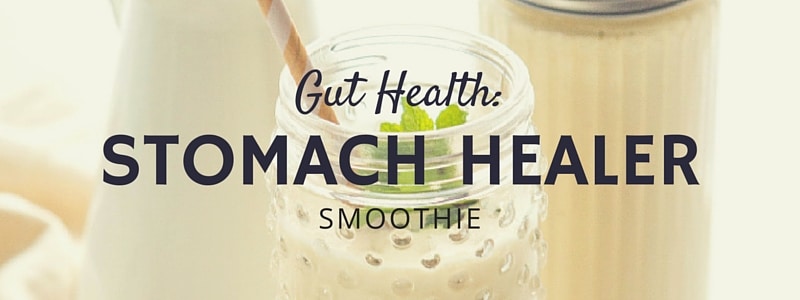
There’s a growing awareness of leaky gut syndrome, but the understanding of how important our gut is to our overall health is nothing new.
In fact, in the era of classic Greece, Hippocrates—known as the Father of the Modern Medicine—made the famous proclamation that ‘all diseases start in the gut’.
Hippocrates may not have known the science behind leaky gut syndrome, nor did he use the term, but he was spot on.
What is Leaky Gut Syndrome?
The gastrointestinal tract or the gut is the largest organ in a human body and is primarily responsible for digesting food, absorbing vital nutrients from it and expelling the waste that’s left behind. It also plays an important part in our immune system.
Ideally, the gut wall is built like a fortress, only allowing certain particles, nutrients and chemicals to move through it and into your bloodstream.
[Related: 9 Common Nutrient Deficiencies (and How to Fix Them)]
However, a bad diet, infections, or injury can allow antigens, microbes, undigested foods, toxins and infection to leak through the wall and seep into your circulation.
This causes your body’s immune system to identify these particles as a threat and go into overdrive to fight them off.
This hampers the functioning of the intestines, leading to indigestion, malabsorption and malnutrition in the long run.
It can also result in all kinds of health conditions, such as:
Some even hypothesize that a leaky gut is also responsible for hypertension, thyroid problems and many other day-to-day leaky gut symptoms like bloating, excessive flatulence and stomach cramps.
What’s more, a Norwegian study published in Acta Pediatrica in 2005, leaky gut is often suspected to be involved in several acute and chronic diseases in children such as allergies, asthma, eczema, autism, and psoriasis.
How to Heal Leaky Gut: 8 Proven Steps
I share so many valuable health tips with you on the site, but few are more crucial than the eight below. Gut health is of utmost importance so let me guide you through how you can get it back in order.
First things first, you have to remove the troublesome foods that are known to damage our intestines.
High caffeine, processed foods, sugars and alcohol are all linked to a leaky gut. These items support the growth of yeast, bacteria, candida and other pathogens in the gut.
These pathogens release toxins called exotoxin that damage the gut wall and enlarge the tight junctions that make your gut literally start leaking.
Food allergens are one of the most common causes of leaky gut syndrome.
Gluten has been identified the biggest culprit. Other common allergens are dairy—especially cow’s milk—alcohol, soy, yeast and sugar and excessive meat.

Once you’ve eliminated these prime offenders, you should take on a detox diet to help soothe the intestines and cleanse them of all the toxins.
After that, careful diet planning should be undertaken to avoid any exposure to the causative allergen.
Hydration is very important for all of our organs to function correctly. A dehydrated body is susceptible to allergens and infections as it is unable to remove toxins.
To maintain an adequate amount of hydration one should consume at least 8-10 glasses of fluids in a day. This can be increased or decreased depending on your individual need.

Make no mistake, a fibre rich diet is essential for maintaining gut health.
Adequate fibre in your diet ensures that gut motility is maintained, digestion is supported and that your gut wall is protected.
It also supports the growth of the good bacteria in the gut which is so important.
Ideally, you should be getting about 35 grams of fibre per day. You can get it from adequate servings of lightly steamed vegetables, sprouts and seeds like flax and hemp.

Though the word ‘fat’ may scare you, healthy fats which contain omega 3 and 6 and EFAs are crucial to gut health.
They are required by both the smooth muscle cells and the nervous system cells in the gut. These cells require them to keep the gut wall lubricated and to create peristaltic movements throughout the gut that prevents constipation and keeps you waste coming out of you as soon as it should.
They are also required for the absorption of the fat-soluble vitamins, which are required to build and maintain the lining of the gut.
EFAs like linoleic and linolenic acid are not manufactured in the body and are obtained from food. These EFAs are required to synthesize omega 3 and 6 in the body.
I suggest 1-2 tbsp of EFAs a day. They can be acquired from food items like cold-water fish, coconut oil, and olive oil, seeds like hemp, flax, nuts like walnuts and almonds, eggs and avocado.
Candida, yeast, fungus and other bad bacteria can create havoc in the intestines. These pathogens release toxins like mycotoxins and exotoxins that disrupt the normal functioning of the gut.
They damage the mucosal lining by latching on to them, thus increasing gut permeability directly.
You can eliminate entry of these pathogens into your system by avoiding foods notorious for fungal growth. Avoid baked goods that have been made using activated yeast.
For maintaining gut health take noted antifungal remedy caprylic acid 1-2 tsp or capsules per day for one to two weeks, then add 3-4 drops of oregano oil or garlic oil a day. Stop after two weeks.

Leaky gut syndrome decimates your store of healthy and balanced gut flora. To bring things back into balance, you want to restore this good gut flora.
A gut well populated with good bacteria has good digestion, reduced flatulence, good health and less disease. The correct protocol to replenish good bacteria is to supplement from both food and supplements.
Fibre-rich food is also a good way to support the growth of the good bacteria. Probiotic rich food like miso soup, kefir and sauerkraut will all do the trick.
Probiotic supplements can also be taken to re-inoculate the gut. Start with a good brand that contains a 30 billion count, and take that once a day for the first 2-4 weeks, then maintain with 8-12 billion per day.

Along with everything else you’re doing to combat leaky gut syndrome, it’s crucial to repair and rebuild your gut cells and gut lining. This is the final step to restoring your gut health.
Studies are being done to find out innovative and natural ways to do so. Many studies have found that consumption of glutamine helps in rebuilding and maintaining gut structure and function.
Studies have also shown that glutamine has the potential to repair the damage done by chemotherapy and radiation.
Glutamine is an essential amino acid, and is produced in the body. It has anti-inflammatory properties, protects the intestinal cells and wards off irritants in the gut. It can be supplemented in the diet by consuming raw cabbage, aloe vera, legumes and beans, eggs and seafood.
As with my other health tips, I hope this gives you some reassurance that you can take your health into your own hands. More specifically, I hope this gives you a good sense on how to heal leaky gut. It’s an insidious condition that can significantly damage your health, so do all you can to avoid it!
Did you enjoy this article on How to Heal Leaky Gut Syndrome Naturally? You might also like my 1-Day Detox Plan that busts sugar cravings, restores youthful energy, and drops belly bloat… by tomorrow. Click the banner below to get it for FREE.
1. Kiefer, D; Ali-Akbarian, L (2004). A brief evidence-based review of two gastrointestinal illnesses: Irritable bowel and leaky gut syndromes. Alternative Therapies in Health and Medicine 10 (3): 22–30. PMID 15154150
3. Fasano, A. (February 2012). Leaky Gut and Autoimmune Diseases. Clinical Reviews in Allergy & Immunology (Review). 42 (1): 71–78. PMID 22109896
4. Liu Z, et al (2005). Tight junctions, leaky intestines, and pediatric diseases. Acta Paediatrica. 94(4): 386-93
6. Arrieta MC, et al (October 2006). Alterations in intestinal permeability. Gut. 55(10):1512-20.
7. Gecse K, et al (2012). Leaky gut in patients with diarrhea-predominant irritable bowel syndrome and inactive ulcerative colitis. Digestion. 85(1):40-6.
8. Hollander D (October 1995). Intestinal permeability, leaky gut, and intestinal disorders. Curr Gastroenterol Rep. 1(5):410-6.
9. Mezzelani A, et al (January 2014). Environment, dysbiosis, immunity and sex-specific susceptibility: A translational hypothesis for regressive autism pathogenesis. Nutr Neurosci. 21.
10. Vaarala O, Atkinson MA, Neu J (2008). The “Perfect Storm” for Type 1 Diabetes-The Complex Interplay Between Intestinal Microbiota, Gut Permeability, and Mucosal Immunity. Diabetes Journal. 10(57): 2555-2562.
11. Pike, M. G.; Heddle, R. J.; Boulton, P.; Turner, M. W.; Atherton, D. J. (1986). Increased Intestinal Permeability in Atopic Eczema. Journal of Investigative Dermatology 86 (2): 101–104.
12. Humbert, P.; Bidet, A.; Treffel, P.; Drobacheff, C.; Agache, P. (1991). Intestinal permeability in patients with psoriasis. Journal of dermatological science 2 (4): 324–326.
13. Omura, Y; O’ Young, B; Jones, M; Pallos, A; Duvvi, H; Shimotsuura, Y (2011). Caprylic acid in the effective treatment of intractable medical problems of frequent urination, incontinence, chronic upper respiratory infection, root canalled tooth infection, ALS, etc., caused by asbestos & mixed infections of Candida albicans, Helicobacter pylori & cytomegalovirus with or without other microorganisms & mercury. Acupuncture & Electro-therapeutics research 36 (1–2): 19–64. PMID 21830350
14. Odenwald, Matthew A.; Turner, Jerrold R. (2013). Intestinal Permeability Defects: Is It Time to Treat? Clinical Gastroenterology and Hepatology 11 (9): 1075– 83. PMID 23851019
15. Thoma YM, Anderson JM, Turner JR (2012). Johnson LR; et al. Tight Junctions and the Intestinal Barrier. Physiology of the Gastrointestinal Tract 1. 1043.
16. O’Hara, JR; Buret, AG (2008). Mechanisms of intestinal tight junctional disruption during infection. Frontiers in Bioscience 13: 7008–21. PMID 18508712
Original article and pictures take yurielkaim.com site
Комментариев нет:
Отправить комментарий